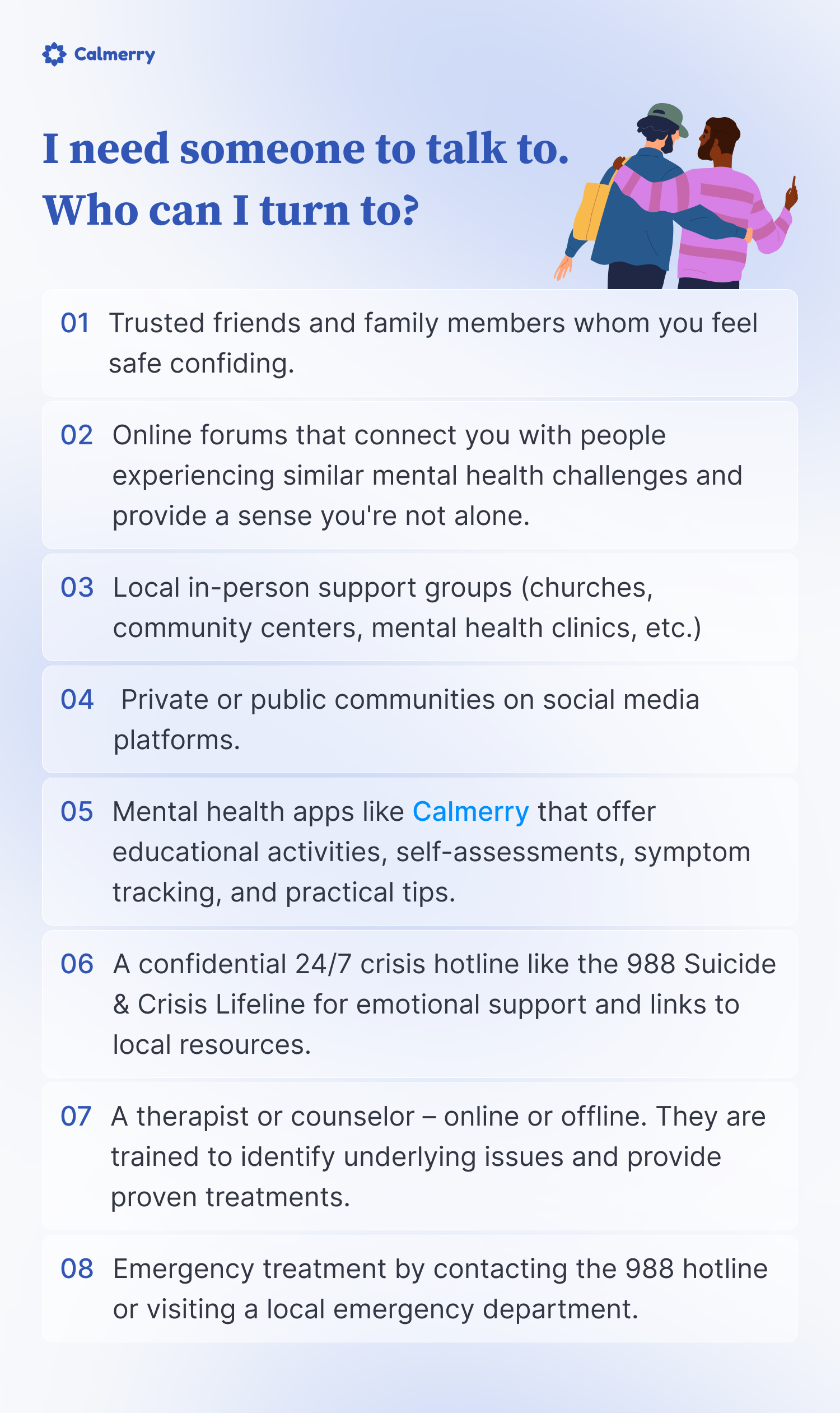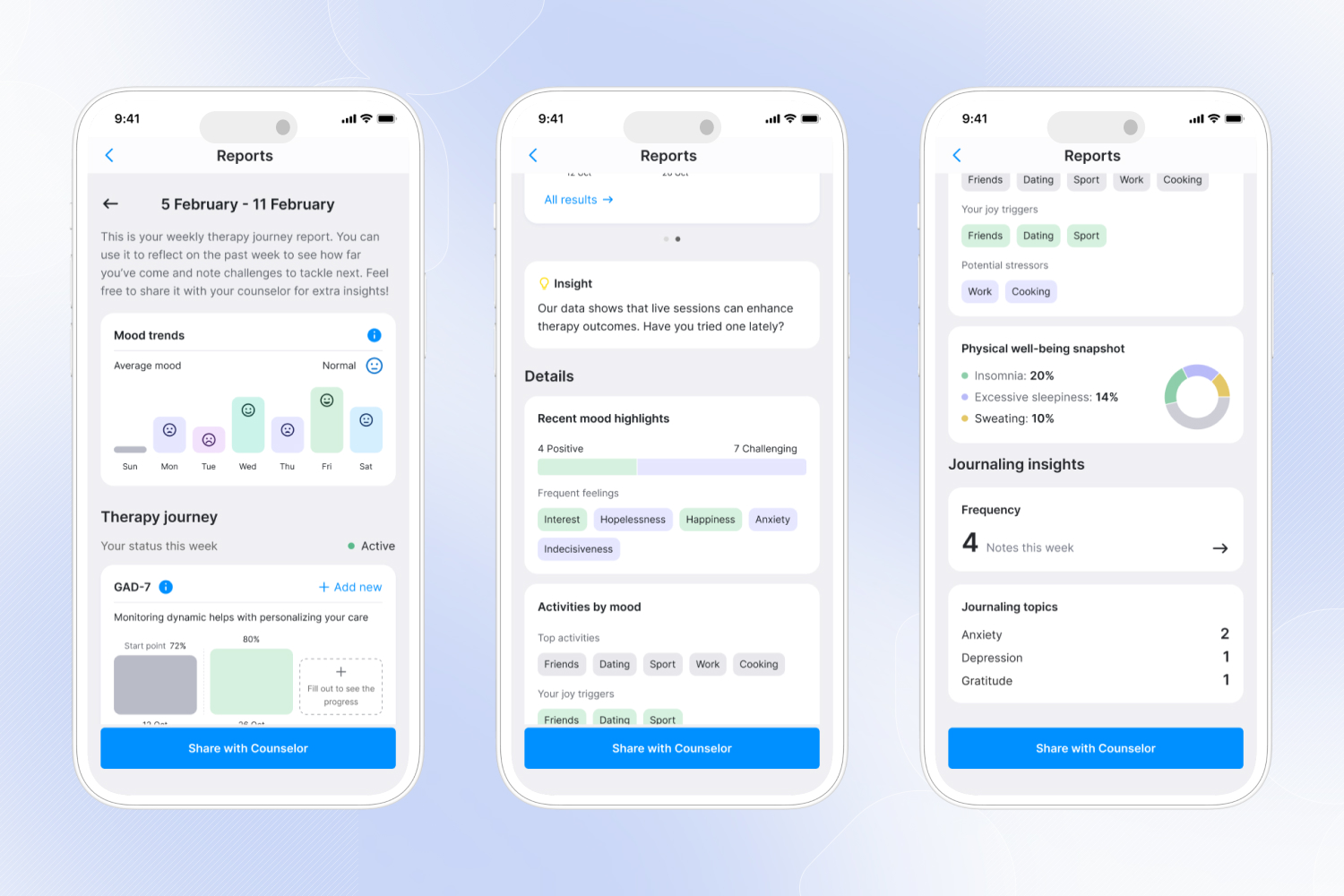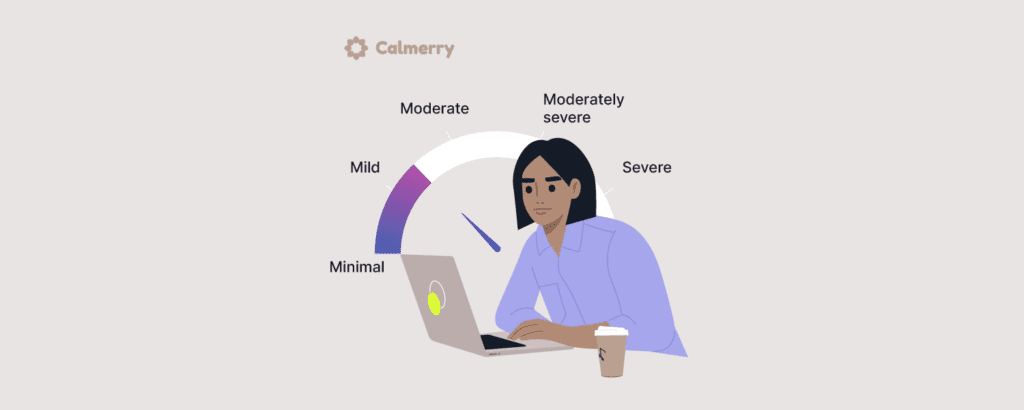I Need Someone to Talk To. I’m not Okay. What Should I Do?

When you’re just not feeling okay, you may not know where to turn. This is entirely normal.
Perhaps you’re afraid of admitting that things aren’t okay, or maybe you don’t want to burden anyone with your concerns. The truth is that many of us feel overwhelmed, stressed, or simply not okay from time to time.
Seeking help is a brave step toward starting to feel better. The people who care about you would want you to reach out to them. It’s also entirely okay to seek out other resources, like support groups or mental health professionals.
Furthermore, research has found that disclosing one’s concerns related to mental illness actually improves psychological well-being. [1] Taniguchi, E., & Thompson, C. M. (2021). Mental illness self-disclosure among college students: a pre-requisite of social support or a booster of social support benefits? Journal of Mental Health, 30(3), 323–332. https://doi.org/10.1080/09638237.2021.1922626 Talking about your struggles will increase your level of social support, which is important for psychological health.
Who can I turn to to talk?
When you realize you’re in a bad place, there are so many options for support. Where you turn depends on your specific needs and situation.
If you’re struggling with a traumatic or unexpected event, you might benefit from talking to loved ones. They know you best, and they’ll be able to offer words of encouragement.
You might also consider seeking situation-specific support. For example, if you’re struggling with anxiety, you might attend a support group for anxiety disorders.
There are so many different sources of support, and here’s more about each.

1. Reaching out to trusted friends and family
It’s helpful to have trusted friends and family members you can confide in when you’re struggling. Think about who you turn to when you’re having a bad day and feel safe to.
These same people can offer support when you’re feeling overwhelmed by anxiety, depression, or other mental health problems.
Research has shown that family members, in particular, are a significant source of support for people with mental health problems. [2] Waller, S., Reupert, A., Ward, B., McCormick, F., & Kidd, S. (2018). Family‐focused recovery: Perspectives from individuals with a mental illness. International Journal of Mental Health Nursing, 28(1), 247–255. https://doi.org/10.1111/inm.12528
– Dr. Jenni Jacobsen, PhD, Licensed Social Worker (LSW), mental health writer
Your loved ones wouldn’t want you to remain silent when you’re struggling. If you’re worried about negative judgment, know that your loved ones care about you.
2. Online forums
People also benefit from using online forums when they’re struggling with mental health. These forums can connect you to people experiencing the same challenges as you.
The benefit of online forums is that you can connect with others, no matter where you’re located. They also offer around-the-clock access to support.
If you’re feeling lonely, these forums provide a sense of social connection. You can post questions to get responses from others. Or, you might prefer to read through responses to questions others have asked.
No matter how you choose to use these forums, you’ll find advice you can apply to your own life. You’ll probably also feel less alone after connecting with others coping with similar struggles.
3. Local support communities
If you prefer to connect with others face-to-face, you can attend local support groups. When you’re not feeling okay, these groups provide a safe setting for discussing your struggles.
As with online forums, you’ll also connect with others experiencing similar challenges. You can find local support groups through churches, community centers, and mental health clinics.
There are typically a variety of support group options. For instance, some groups may provide peer support for those with mental health conditions in general. Others may be specific to a condition like anxiety, ADHD, depression, or addiction.
Attending one of these groups will help you realize you’re not alone. Other people are living with similar challenges, and they are finding ways to thrive!
4. Social media communities
Social media platforms like Facebook and Instagram can also offer support when you’re feeling down. These platforms have plenty of private communities where you can seek guidance from others.
A quick search will help you locate a support group that suits your needs. For example, if you’re struggling with body image, you can search “body image support” and quickly locate available communities.
One relatively recent study found that social media support does make a difference. In the study, young adults who disclosed stressful life events on Facebook felt more socially supported. [3] Zhang, R. (2017). The stress-buffering effect of self-disclosure on Facebook: An examination of stressful life events, social support, and mental health among college students. Computers in Human Behavior, 75, 527–537. https://doi.org/10.1016/j.chb.2017.05.043
These young adults also had increased life satisfaction and less depression.
So, reaching out to a social media community can boost your spirits when you’re feeling down.
5. Mental health apps and self-help resources
Some people benefit from using mental health apps when they’re feeling down. These apps offer resources like educational activities, self-assessments, and practical tips.
Apps allow you to track your symptoms and monitor how you’re feeling daily. [4] Bucci, S., Schwannauer, M., & Berry, N. (2019). The digital revolution and its impact on mental health care. Psychology and Psychotherapy, 92(2), 277–297. https://doi.org/10.1111/papt.12222 As you monitor fluctuations in your emotions, you might identify factors that lead to changes in symptoms.
For instance, you might notice that you tend to feel more cheerful on days when you spend time outdoors. This is valuable information because it shows you how small changes can help you feel better again.
If you’re looking for an app that can track your emotional, mood, and physical patterns and connect them with daily activities, download the Calmerry app. It’s free to everyone. Read more about the self-help tool it offers.

Research has shown that three popular apps, MoodKit, MoodPrism, and MoodMission, are beneficial. These apps can help you track moods and teach you principles from cognitive behavioral therapy (CBT). [4] Bucci, S., Schwannauer, M., & Berry, N. (2019). The digital revolution and its impact on mental health care. Psychology and Psychotherapy, 92(2), 277–297. https://doi.org/10.1111/papt.12222
CBT is a modality that helps people to change negative or unhelpful thinking patterns. When they replace negative thoughts with more positive ways of thinking, their moods improve.
Research has demonstrated that the three apps mentioned above are associated with improvements in mental well-being.
There are additional mental health apps on the market, so there truly is something for everyone. Search for apps via your cell phone or tablet to find something that fits your needs.
6. Crisis hotlines and text-based support services
If you feel you’re in a crisis or so overwhelmed you don’t know where to turn, you can always contact a crisis hotline.
The 988 Suicide & Crisis Lifeline is the national crisis service.
This hotline is available 24 hours a day, 7 days a week, to offer support to those in suicidal crisis or emotional distress. Your call to the 988 hotline is entirely confidential and free of charge.
When you contact the hotline, a trained crisis worker will take your call. You’ll be provided with emotional support and linked to local resources in your community.
You can text a crisis counselor by sending a message to the number 988 on your phone. You can also dial this number to have a phone conversation. If you prefer to use a webpage, you can chat with a counselor at the 988 website.
7. Talking to a mental health professional
Sometimes, we feel overwhelmed due to a life stressor, such as a job loss or a breakup. In these cases, we may get the support we need by talking to loved ones and using self-help tools.
However, if the feeling of “not being okay” continues and it doesn’t seem to get better, it may be time to reach out to a mental health professional.
Persistent feelings of anxiety, sadness, or hopelessness can indicate an underlying mental health disorder.
– Dr. Jenni Jacobsen, PhD, Licensed Social Worker (LSW), mental health writer
Friends and family can be invaluable sources of support when you’re struggling, but professionals like therapists and counselors offer an additional layer of support.
The difference between talking to a therapist vs. a friend is that a therapist is trained in specific techniques that allow them to assess and intervene with people experiencing mental health problems and psychological distress.
A therapist will be able to identify underlying mental health problems contributing to your feelings of not being okay.
They can also offer proven treatments to help you reframe your thinking and practice healthy coping skills.
8. Emergency treatment
In some cases, the feeling of “not being okay” means you have thoughts of harming yourself. If you are experiencing thoughts of suicide or self-harm, it’s critical that you seek emergency treatment.
Mental health professionals can provide counseling to people feeling down or depressed, but in a suicidal crisis, immediate treatment is essential. It can take several weeks to get in to see a therapist, or you may have breaks between appointments.
If you’re in a suicidal crisis, you can call or text the 988 hotline, and a crisis counselor will offer guidance. You can also present to the local emergency department for emergency psychiatric treatment.
You are never alone when you’re having thoughts of self-harm. Many people have experienced a crisis like this, and they have gotten through it with support.
– Dr. Jenni Jacobsen, PhD, Licensed Social Worker (LSW), mental health writer
In a moment of crisis, it may seem like things will never get better, but asking for help is worth it. You’re worthy of support to help you get to the other side.
Convenience of online therapy to find someone to talk to
If you’re not feeling okay or just need someone to talk to, contacting a therapist can be the support you need.
If you’re looking for comfort and convenience, online therapy on Calmerry is an excellent option.
With online therapy services, you can connect with a professional without leaving your space. This gives you easy access to someone to talk to, and they will be able to offer expert guidance.
We can match you with your therapist within 1 hour. Start with a brief survey.
Taniguchi, E., & Thompson, C. M. (2021). Mental illness self-disclosure among college students: a pre-requisite of social support or a booster of social support benefits? Journal of Mental Health, 30(3), 323–332. https://doi.org/10.1080/09638237.2021.1922626
Waller, S., Reupert, A., Ward, B., McCormick, F., & Kidd, S. (2018). Family‐focused recovery: Perspectives from individuals with a mental illness. International Journal of Mental Health Nursing, 28(1), 247–255. https://doi.org/10.1111/inm.12528
Zhang, R. (2017). The stress-buffering effect of self-disclosure on Facebook: An examination of stressful life events, social support, and mental health among college students. Computers in Human Behavior, 75, 527–537. https://doi.org/10.1016/j.chb.2017.05.043
Bucci, S., Schwannauer, M., & Berry, N. (2019). The digital revolution and its impact on mental health care. Psychology and Psychotherapy, 92(2), 277–297. https://doi.org/10.1111/papt.12222
online therapy
live video session



